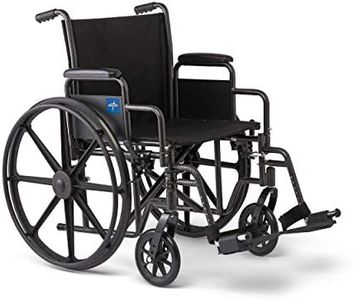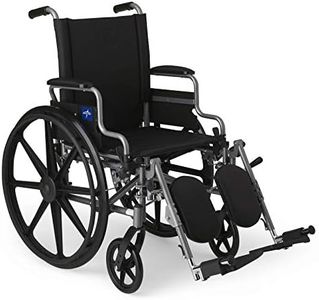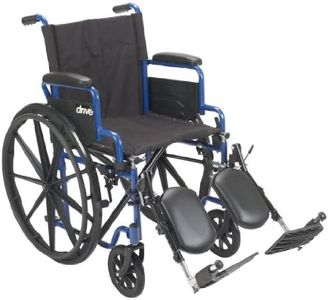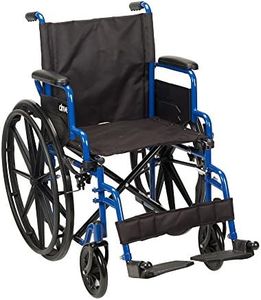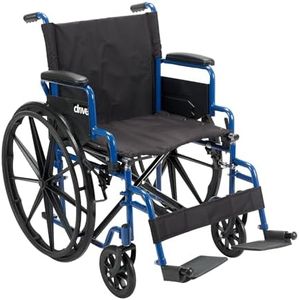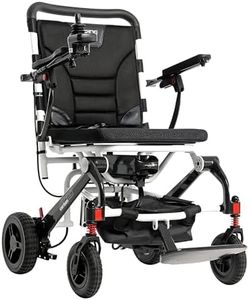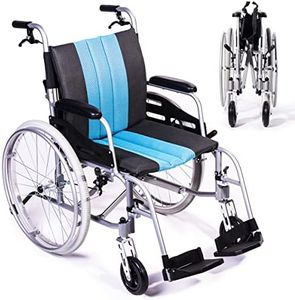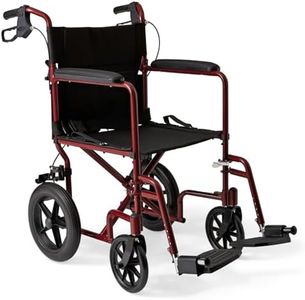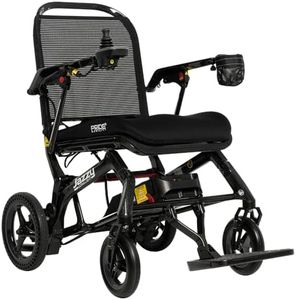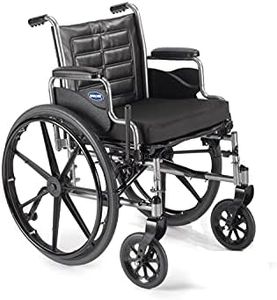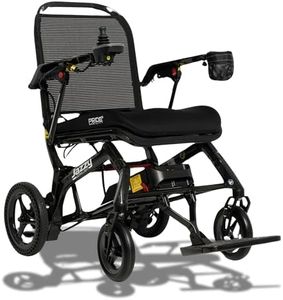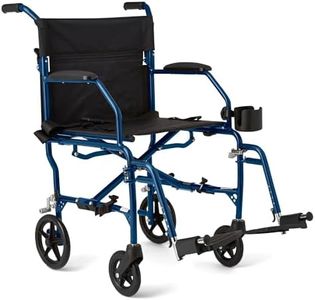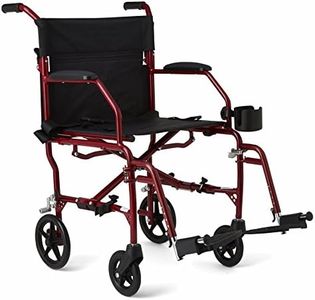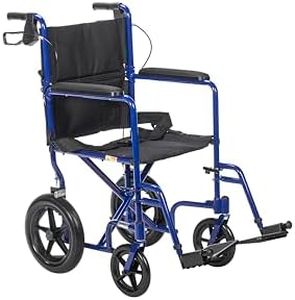10 Best Lightweight Wheelchairs 2025 in the United States
Recommended lists
Our technology thoroughly searches through the online shopping world, reviewing hundreds of sites. We then process and analyze this information, updating in real-time to bring you the latest top-rated products. This way, you always get the best and most current options available.

Our Top Picks
Winner
Medline Comfortable Folding Wheelchair with Swing-Back Desk-Length Arms and Swing-Away Footrests, 18”W x 16X”D Seat
Most important from
1137 reviews
The Medline Comfortable Folding Wheelchair offers a good balance of comfort, durability, and ease of use. Its 18”W x 16”D seat provides ample space for most users, and the swing-back desk-length arms and swing-away footrests enhance accessibility and ease of transfer. Weighing 38 lbs, it may not be the lightest option available, but it's still manageable for many users, especially considering its sturdy build and 300 lb weight capacity.
The large wheels and precision bearings ensure smooth movement across various terrains, making it versatile for both indoor and outdoor use. When folded, the chair becomes compact (32.5”L x 11.5”W x 36.5”H), facilitating storage and transport. However, at 47.5 pounds in the product specs, it appears heavier than the stated 38 lbs, which could be a point of confusion.
For those who need a reliable, durable wheelchair with decent comfort and support, this Medline model could be a solid choice. If absolute lightweight is a priority, there might be other models to consider.
Most important from
1137 reviews
Medline Lightweight Wheelchair for Adults With Swing-Back, Desk-Length Arms, Elevating Leg Rests; 18W" x 16"D Seat
Most important from
4717 reviews
The Medline Lightweight Wheelchair offers a blend of comfort, durability, and user-friendly features, making it a solid choice for seniors and adults. Weighing 34 pounds, this wheelchair is relatively light for ease of transport. The frame is designed for both indoor and outdoor use, ensuring stability across different terrains. One of its standout features is the height-adjustable seat, ranging from 18 to 20 inches, which enhances comfort for various users.
Additionally, the wheelchair's swing-back, desk-length arms facilitate easier lateral transfers and better access to tables and desks, while the elevating leg rests add to user comfort. The nylon upholstery is both soft and breathable, contributing to ease of maintenance and a pleasant user experience. When it comes to dimensions, the seat measures 18 inches in width and 16 inches in depth, accommodating a wide range of body types. The chair is also foldable, with dimensions of 30 inches long by 10.5 inches wide and 38 inches high when folded, making it convenient to store and transport.
However, at 34 pounds, some users might find it slightly heavier compared to other ultralight models. Nevertheless, its 300-pound weight capacity makes it a robust option for many users. The chair's design supports effortless maneuverability, but the fixed wheel type may limit its adaptability to very rough terrains. People seeking a reliable, comfortable, and moderately lightweight wheelchair that is easy to maintain will find this model quite appealing.
Most important from
4717 reviews
Drive Medical BLS18FBD-ELR Blue Streak Lightweight Wheelchair with Swing-Away Elevating Leg Rests and Flip-Back Arms
Most important from
27320 reviews
The Drive Medical BLS18FBD-ELR Blue Streak wheelchair is a solid choice if you need a lightweight, easy-to-handle wheelchair for everyday use. Weighing just over 41 pounds, it’s portable and folds down to a narrow 12.5 inches, making it easier to transport or store in tight spaces. The frame is designed for durability, and it supports up to 300 pounds, which fits most users comfortably. The 18-inch wide seat offers a decent space, though the 16-inch depth might feel a bit short for taller individuals.
One of its standout features is the swing-away elevating leg rests with calf pads, which help take pressure off the legs and improve comfort during longer sitting periods. The flip-back padded armrests are convenient for getting in and out or sitting close to tables. The wheelchair’s solid wheels are lightweight yet stable, making it easy to push indoors and around doorways. However, since it uses solid tires instead of air-filled ones, the ride might be less smooth on bumpy surfaces compared to pneumatic wheels.
Adjustability is good with removable armrests and leg rests. This wheelchair suits adults or seniors looking for a practical, transportable option with some comfort features, but those needing more extensive cushioning or off-road capability might want to consider other models.
Most important from
27320 reviews
Buying Guide for the Best Lightweight Wheelchairs
Choosing the right lightweight wheelchair can significantly enhance mobility and independence. It's important to consider various factors to ensure the wheelchair meets your specific needs and lifestyle. Here are some key specifications to consider when selecting a lightweight wheelchair, along with explanations to help you make an informed decision.FAQ
Most Popular Categories Right Now
